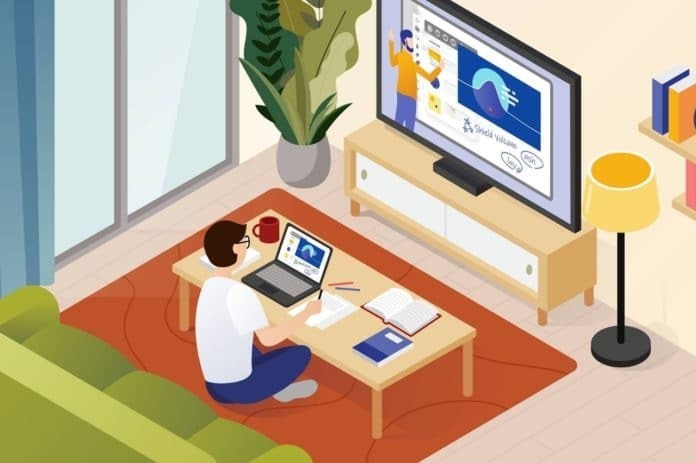
EU adopts new rules to significantly cut packaging waste with re-use targets
The European Union has formally adopted a regulation on packaging and packaging waste. The new ...

UNESCO launched a global education coalition to ensure that “#LearningNeverStops” as about 87 percent of the world’s student population is affected by COVID-19 school closures. Over 1.5 billion learners in 165 countries are affected by COVID-19 school closures.
“Never before have we witnessed educational disruption on such a scale,” said UNESCO Director-General Audrey Azoulay. “Partnership is the only way forward. This Coalition is a call for coordinated and innovative action to unlock solutions that will not only support learners and teachers now, but through the recovery process, with a principle focus on inclusion and equity.”
Multilateral partners, including the International Labor Organization, the UN High Commission for Refugees, The United Nations Children’s Fund, the World Health Organization, the World Food Program and the International Telecommunication Union, as well as the Global Partnership for Education, Education Cannot Wait, the OIF (Organization Internationale de la Francophonie) the Organization for Economic Cooperation and Development, and the Asian Development Bank have joined the Coalition, stressing the need for swift and coordinated support to countries in order to mitigate the adverse impacts of school closures, in particular for the most disadvantaged.
The private sector, including, Microsoft, GSMA, Weidong, Google, Facebook, Zoom, KPMG and Coursera have also joined the Coalition, contributing resources and their expertise around technology, notably connectivity, and capacity strengthening. Companies using learner and educational data have committed to uphold ethical standards.
Philanthropic and non-profit organizations, including Khan Academy, Dubai Cares, Profuturo and Sesame Street are also part of the Coalition, mobilizing their resources and services to support schools, teachers, parents and learners during this time of unparalleled educational disruption.
Media outlets are also invited to join the Coalition, as has done the BBC World Service as part of its commitment to supporting young people in lockdown across the globe. The BBC will be producing advice, stories, and media education materials to help isolated young people understand how the Coronavirus may affect them.
The Coalition aims to help countries in mobilizing resources and implementing innovative and context-appropriate solutions to provide education remotely, leveraging hi-tech, low-tech and no-tech approaches.
It also seeks equitable solutions and universal access, ensures coordinated responses and avoids overlapping efforts, and facilitates the return of students to school when they reopen to avoid an upsurge in dropout rates.
With its emphasis on equity and gender equality, the Global Education Coalition will respond to countries’ specific needs, as envisaged during the meetings of Education Ministers convened by UNESCO. It will endeavor to match needs with free and secure solutions, bringing partners together to address connectivity and content challenges among others. It will provide digital tools and learning management solutions to upload national digitized educational resources, and curate resources for distance learning and strengthen technical expertise using a with a mix of technology and community approaches, depending on local contexts. In all interventions, special attention will be placed on ensuring data security and protecting the privacy of learners and teachers.
“We are working together to find a way to make sure that children everywhere can continue their education, with special care to the most vulnerable and disadvantaged communities,” said Tedros Adhanom Ghebreyesus, Director-General of the World Health Organization, in a video message marking the Coalition’s launch, together with UNESCO Director-General and other personalities.
“We must speed up the ways we share experience, and help the most vulnerable, whether or not they have internet access”, said Angelina Jolie, UN High Commission for Refugees Special Envoy, who partnered with UNESCO in the establishment of the Coalition.
UN Deputy Secretary General Amina Mohamed expressed the UN’s full commitment to the Coalition, warning that “for millions of children and youth from disadvantaged backgrounds, school closures could mean the loss of a vital safety net – of nutrition, protection and emotional support.” She added, “This is not a time to deepen inequalities. It is a time to invest in education’s power to transform. As we embark on the decade of action of the 2030 Sustainable Development Agenda, our responsibility as a global community is to leave absolutely no one behind.”
The European Union has formally adopted a regulation on packaging and packaging waste. The new ...
Inaugurating the Abydos Solar Power Plant in the Upper Egypt governorate of Aswan represents a ...
Businesses that fail to adapt to climate risks like extreme heat could lose up to ...


اترك تعليقا